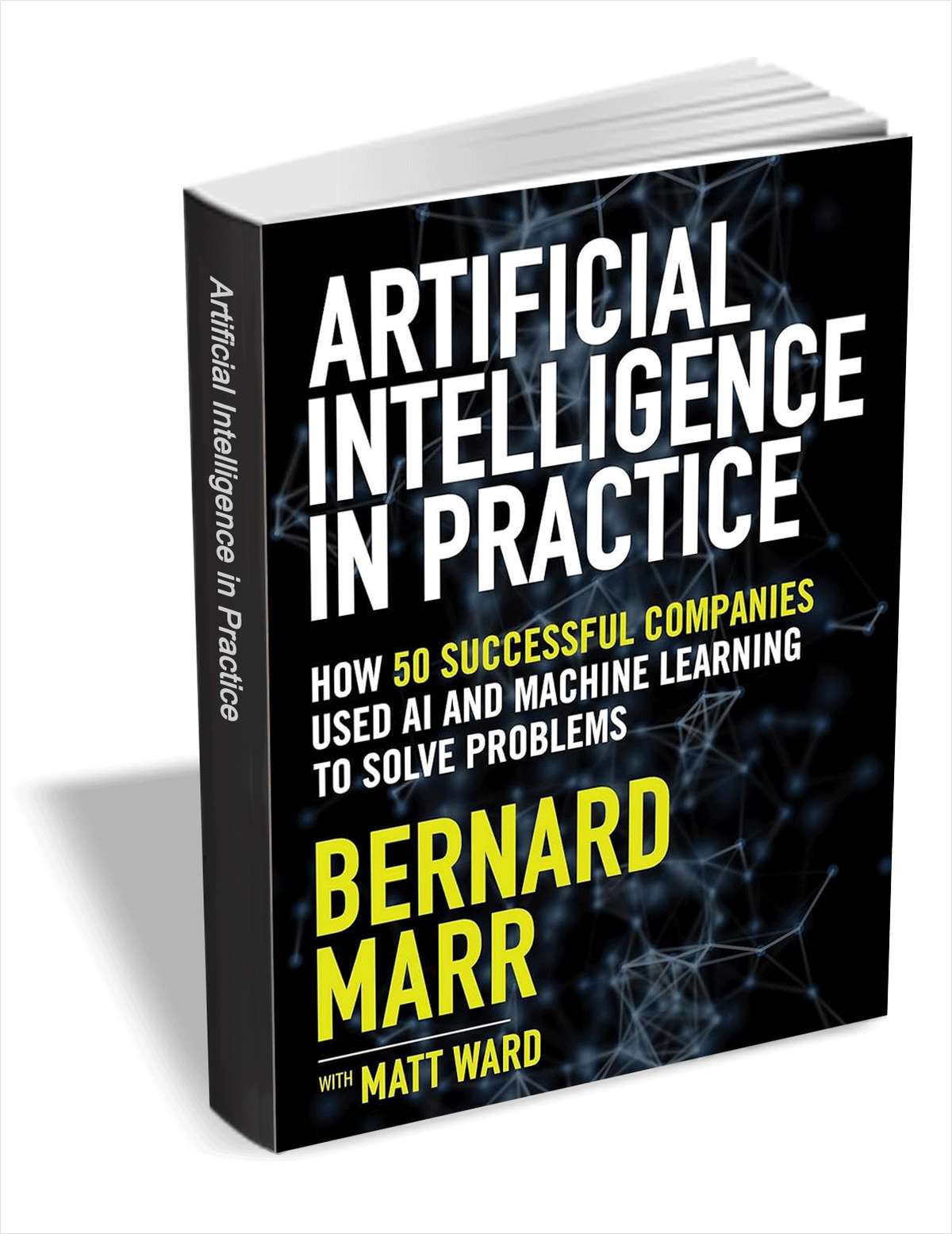
Improving data analysis with AI [Q&A]
Generative AI is making its presence felt in more and more areas, but there are well-founded concerns about the accuracy of information that it provides.
Is it possible to provide the convenience of a large language model AI system, with the logic and accuracy of advanced analytics? Arina Curtis, CEO and co-founder of DataGPT, thinks so. We spoke to her to find out more.

Safeguards for using Artificial Intelligence in election administration
Election administration is an essential component of the democratic process, but is also very challenging. The number of voters involved, which can climb into the tens of millions, requires the use of systems that have been fine-tuned for maximum efficiency. Managing the complexity of those systems, which are often spread out over vast geographical areas, is daunting, especially considering the task often relies on a volunteer staff with high turnover rates. Looming over the entire enterprise is the requirement for unquestionable accuracy and crystal-clear transparency.
Artificial intelligence, which thrives at optimizing systems for maximum efficiency and accuracy, has the potential to provide valuable support for election administration. Leveraging it for that purpose, however, also requires that strong safeguards be put in place.

Tech businesses turn to AI to improve revenues and compliance
Process efficiency and cost-saving are top priorities for life sciences and high-tech executives, with greater emphasis placed on advanced analytics and artificial intelligence (AI) to achieve these priorities according to a new report.
The study from Model N shows three-quarters of executives say their current approach to revenue optimization needs improvement, and survey responses show plans to bolster revenue operations by incorporating advanced analytics (68 percent), AI (59 percent), and robotic process automation (46 percent).

Cisco adds new AI and security innovations
Security and networking specialist Cisco is announcing changes to its Cisco Security Cloud as part of its mission to simplify security.
Cisco Identity Intelligence -- available from July this year -- will run on top of customers' existing identity stores and provides unified visibility, as well as AI-driven analytics.

Who will protect us from AI-generated disinformation?
Generative AI has gone from zero to a hundred in under a year. While early, it’s shown its potential to transform business. That we can all agree on. Where we diverge is on how to contain the dangers it poses. To be clear, I am pro innovation, and far from a fearmonger. But the recent uptick in misinformation -- largely aimed at polarization around controversial issues of the moment -- has made it clear that, if left unchecked, gen AI could wreak havoc on societies.
We’ve seen this movie before with social media, but it took years and hard lessons for us to wake up to its flaws. We’ve (presumably) learned something. The question today is who will help stem the tide of reality distortion from gen AI, and how?

Get Copilot Pro says Microsoft in latest Windows 11 ads push
Many Windows users have access to Microsoft Copilot, a built-in AI tool. This tool is free to use. Microsoft created Copilot Pro as an optional subscription-based service. Available for $20 per user and month, Copilot Pro promises "priority access to GPT-4 and GPT-4 Turbo during peak times". A subscription delivers answers, content, and generated AI images faster, according to Microsoft's description of the service.
Subscribers get two additional benefits. Designer, which allows users to use AI to generate images, gets 100 boosts per day. Boosts prioritize requests so that results are returned faster. Designer still works without boosts, but it may take longer to generate and return image creations to the user.

How AI is changing the way developers work [Q&A]
The fear of software developers losing their jobs to AI is a concern for many people in the industry, but are these fears really justified?
Mike Loukides, VP of emerging tech content at O'Reilly Media, believes that AI can enhance the developer role rather than replace it. We spoke to him to find out how, with the right tools and training, the endpoint of this AI revolution won't lead to unemployment, but rather to better software.

Five ways that will transform the developer experience in 2024
In 2024, the rate of innovation is set to skyrocket, as organizations develop new digital products and services at pace. This growing demand for new software is putting extra pressure on developers.
As these trends gain momentum, it’s vital organizations help developers to keep up and do more with less, so they can iterate at speed without sacrificing on quality or security. Here are five ways organizations can maximize developer productivity and help them adjust to a rapidly changing world:

How AI is changing the telecoms industry [Q&A]
The transition to cloud and SaaS use, along with the recent move towards remote and hybrid working, has placed increased pressure on the telecoms industry. At the same time, it has unlocked a significant opportunity for telcos, as remote work has placed a premium on services like fiber and broadband.
Increased data volumes place additional demands on infrastructure and drives up costs. We talked to Anthony Behan, managing director for communications, media and entertainment at Cloudera to discuss these developments and how artificial intelligence is helping telcos to adapt.

87 percent of organizations likely to invest in Gen AI coding tools
A new report from software engineering specialist LinearB looks at the effects of generative AI on code creation and delivery.
Gen AI is predicted to generate one in five lines of code by the end of this year and the study of over 150 tech leaders sets out to understand how organizations can measure the effects of Gen AI on their code.

Microsoft is finally updating Sticky Notes for Windows 11 -- expect an AI upgrade
Sticky notes, both virtual and physical, remain incredibly popular. Since Windows 10, Microsoft has had its own app called, funnily enough, Sticky Notes -- an app that had not been updated in years.
But this is about to change; Microsoft has issued a notice that users should "stay tuned for some of our biggest announcements yet". The company is yet to provide details of just when we can expect to see the updates, and has said outright what it NOT going to be -- but we can take a decent guess at what might be.

Get 'Artificial Intelligence in Practice' (worth $24) for FREE
Artificial Intelligence in Practice is a fascinating look into how companies use AI and machine learning to solve problems.
Presenting 50 case studies of actual situations, this book demonstrates practical applications to issues faced by businesses around the globe. The rapidly evolving field of artificial intelligence has expanded beyond research labs and computer science departments and made its way into the mainstream business environment.

Securing the world of tomorrow: Anticipating the IT security topics of 2024 and beyond
With the traditional workplace changing beyond recognition at the start of the decade, we saw the most significant changes to the IT security landscape last year; with the wider implementation of artificial intelligence (AI), stronger authentication practices, third-party data breaches, end-to-end encryption, and the Online Safety Bill to name a few. In this time, cyberattacks have advanced exponentially in sophistication and regularity, with IT cyber defenses struggling to keep up.
Thanks to increasingly large supply chains, small to medium-sized enterprises (SMEs) who once thought they were beyond the ‘crown jewel’ targets of large enterprises, are now struggling to defend themselves in the face of more frequent and sophisticated attacks due to smaller budgets and a lack of robust security measures.

The coming AI revolution: How leaders will harness its power in 2024
2023 represented a breakthrough year for generative AI, which gained immense popularity for enhancing productivity through instant content creation based on user inputs. However, in 2024, organizations must shift from marveling at generative AI's dazzling technical capabilities to rigorously evaluating its tangible business impact and risk.
Organizations eagerly anticipate AI's transformative potential. Forrester's September 2023 Artificial Intelligence Pulse Survey revealed that most companies are evolving in their approach to AI. More than a quarter are experimenting with the technology, while 33 percent are expanding their existing efforts, the survey found. In light of this heightened interest, here are three critical AI-centric predictions for the coming year:

Interest in AI and security surges among developers
The latest Technology Trends Report from O'Reilly shows interest in generative AI among developers has surged.
The report looks at the most popular technology topics consumed by the 2.8 million users on O'Reilly’s online learning platform and finds that topic engagement in GPTs has grown 2,600 percent year-on-year.
